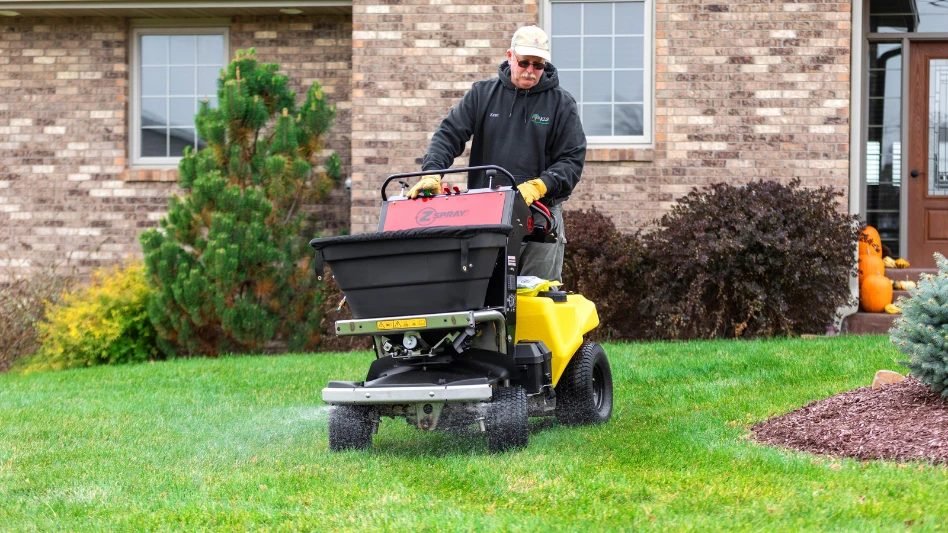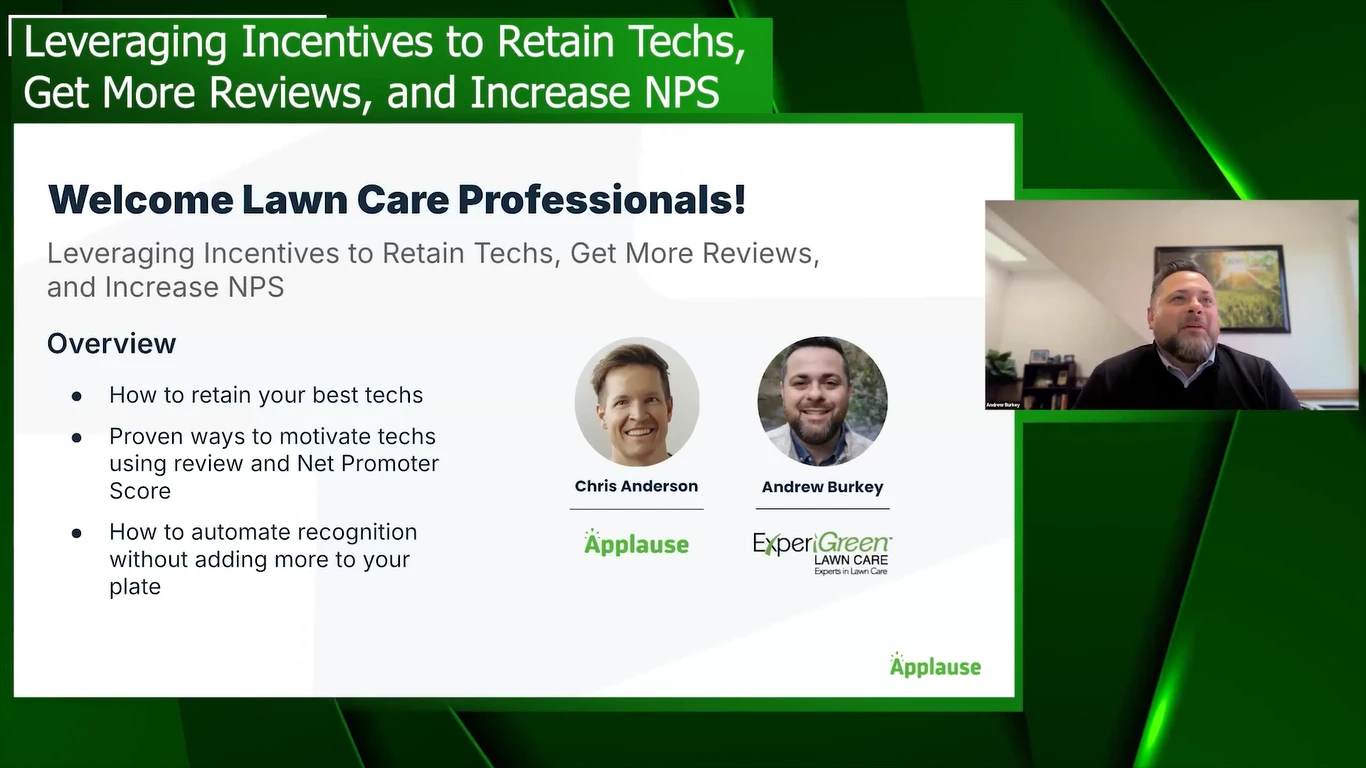 Mark Williams started his Lawn Doctor Franchise in Clarksville, Tennessee eighteen years ago after making a timely exit from his family’s beer wholesale business. He’s never looked back, except to analyze ways to improve his business and better serve his customers. Successful franchisees must be driven people who have the ability to step outside of their businesses and analyze them strategically, he says. Throughout the past 18 years, Williams has grown his franchise into a powerhouse player while also surviving one of the worst droughts in state history without losing many customers.
Mark Williams started his Lawn Doctor Franchise in Clarksville, Tennessee eighteen years ago after making a timely exit from his family’s beer wholesale business. He’s never looked back, except to analyze ways to improve his business and better serve his customers. Successful franchisees must be driven people who have the ability to step outside of their businesses and analyze them strategically, he says. Throughout the past 18 years, Williams has grown his franchise into a powerhouse player while also surviving one of the worst droughts in state history without losing many customers.
1. Why did you get involved in franchising and how long have you been doing it?
I started my Lawn Doctor franchise in 1994 when I was working in a family business and had the opportunity to get out. Growing up, I worked in the maintenance and mowing side of the business, and that put me through college. I wasn’t aware of the care side of the equation until I got a job on a golf course in high school. I earned a degree in agricultural business and then got drawn into the family beer wholesale business. When I had the opportunity to move on, I decided to go back to doing what I liked.
I liked Lawn Doctor’s approach to agronomy and the environmental side, which they were doing way before it was in vogue. They’re all about the customer. At the time, Lawn Doctor was not a big player in the south, so there was not a lot of competition. I was drawn to how I was treated, and continue to be treated, at a corporate level. I jumped in and here we are, 2,200 customers later, $1.5 million in revenue.
2. What are the advantages and disadvantages of franchising?
The success rate is higher with franchises because you’re using a proven system and don’t have to reinvent the wheel. Bulk material purchasing also gives you a huge advantage. The cost savings more than pay our royalty fees. In terms of marketing, I don’t have to worry about Google, our website, pay-per-click, any of that stuff.
If there’s a disadvantage, I guess it would be that you’re kind of locked into one system. That could be a downside if you’re locked into a philosophy that you don’t agree with. Lack of capital can also be an issue, but usually your franchise can help with that.
3. What advice would you have for someone who is thinking about entering the world of franchising?
Research the company by talking to lots of customers, getting online and looking for complaints. You can figure out from that one thing alone if they’re doing it right.
One thing that I liked about Lawn Doctor is that they sent me a list of every single franchise in the system and said to me, ‘Here, call them – this is the good, the bad and the ugly.’ So I did, and I found that there were only a few unhappy people. I just kept calling until I got someone that gave me a negative, and that took me a long time.
One thing is that I think it’s hard to be an absentee owner. You need to have equity, some skin in the game. Sure, there are a few, but usually that’s because they have great technicians in place. You’re only as good as your service technicians.
A lot of people don’t think about exit plans. You have to ask yourself, ‘How long do I give myself before this succeeds’? The failure rate for starting a business is pretty high. People don’t think about what they’ll do if this doesn’t work out. I tell people not to quit their day jobs when they’re just starting out. Sure, it’s a little stressful for you, but you can work evenings and Saturdays until you get to a level where it makes sense.
A lot of people don’t realize what this job entails, too. You start out doing everything, from sales to service complaints. New owners have to think about those things.
4. What type of personality is best-suited for being a franchisee?
Driver analytic! Sometimes analytic people will do better with the management side, but you definitely need to be a driver. Someone who wakes up every day fired up and ready to go. The guys that I know who are successful, most are drivers and slightly analytic.
5. What is the biggest challenge you face being a franchisee and how did you overcome it?
We had a huge drought here in 2009, similar to what Texas went through last year. We tried to be as proactive as we possibly could about helping our clients’ lawns to recover. We ended up staying flat and not losing customers, but there was a huge amount that went into making sure that customers didn’t just can us because of the drought.
You could water in some of the areas we worked in, but in others you couldn’t. About half of our customers said ‘Screw it.’ We kept telling them that we’d help with the recovery, and in the end, we didn’t lose but a handful of customers to the drought. We may have had to skip a few rounds, but we still saved our customer base.

Explore the December 2012 Issue
Check out more from this issue and find your next story to read.
Latest from Lawn & Landscape
- PERC helps debut propane direct-injection fuel system at ACT Expo 2025
- Retargeting Ads – A Secret Weapon for Growing Your Lawn Care Business
- Leading a growing company
- Project EverGreen launches Clean Air Calculator
- Rain Bird acquires smart lawn care company OtO from Toronto
- PBI-Gordon names Marvin as VP of research and development
- Mean Green rolls out Vanquish Autonomous mower
- Focal Pointe launches new podcast series





